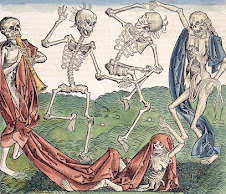Friday, April 25, 2008
I thought the importance of the final story in the Decameron, about the Marquis of Saluzzo, was the power structure. This story demonstrates the relationship between the ruler and ruled, nobles and peasants, and husbands and wives. More importantly, however, it focuses on the idea of marriage from the husband’s perspective. Interestingly, this story shows that Gualtieri thinks of marriage as a burden and a wife would make him miserable. He also declares there are faults in the finding process by saying it is pointless to find a wife based on pedigree. His views on marriage demonstrate that, at least for him, marriage is not desirable and it is, instead, a duty he must perform. While Gualtieri’s treatment of his wife was cruel and he did not suffer any consequences, the narrator’s disapproval of Gualtieri shows that, while women were in a subordinate position to men, they were not meant to be mistreated. Interestingly, this story’s views on women parallels the Fabliaux, “Berengar of the Long Arse’s.” However, the story applauds Griselda’s patience and implies that women, despite mistreatment, must endure it, therefore, strengthening their ties to a subordinate position. Finally, the story implies that “strong” women were not viewed favorably because, as Gulatieri fears, he would “enjoy no peace.” Lastly, this story’s view on the role of women is the opposite of “The Knight of the Cart’s,” where Lancelot was virtually Guinevere’s slave, which suggests that the role of women has changed since Chrétien’s time.
Subscribe to:
Post Comments (Atom)

No comments:
Post a Comment